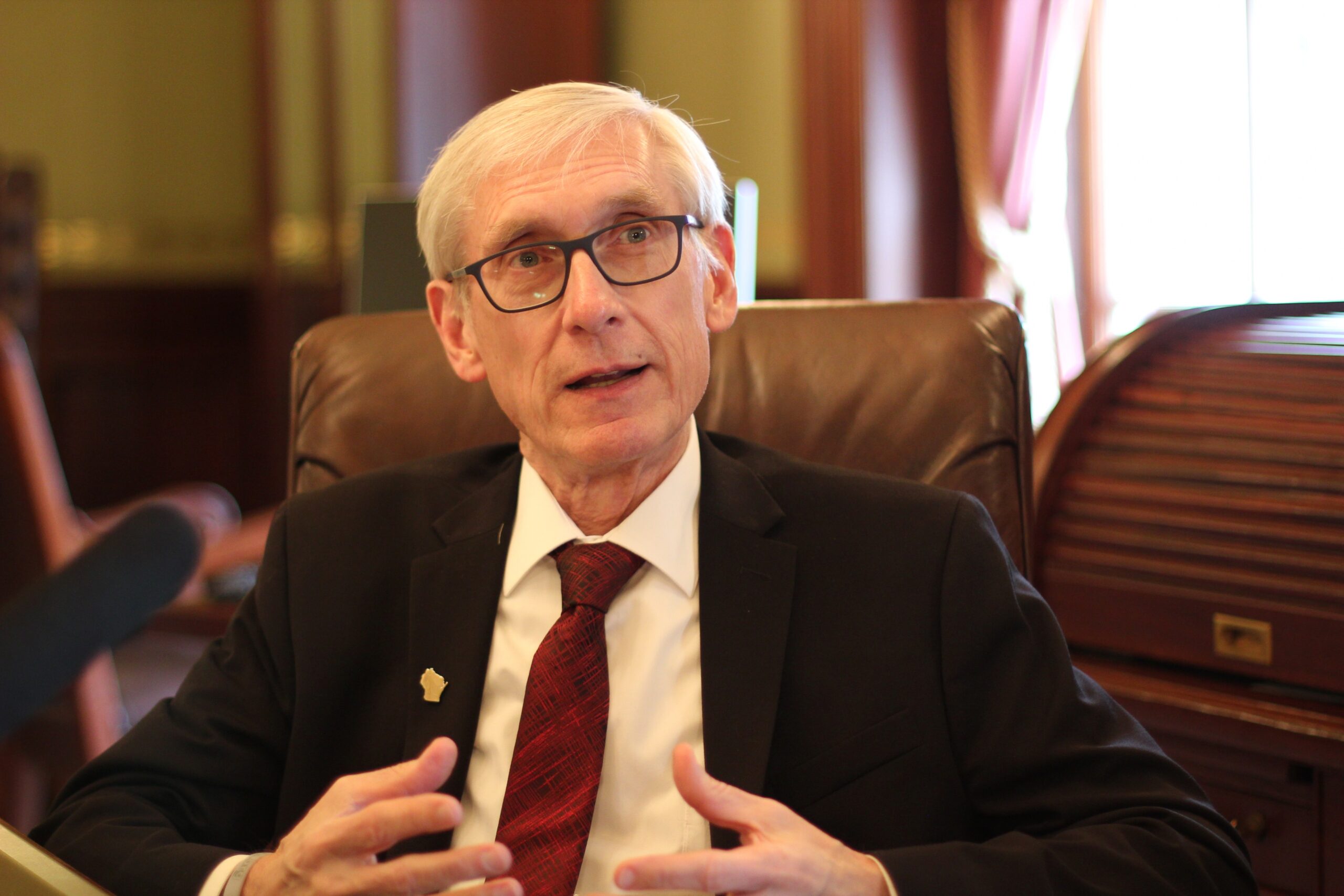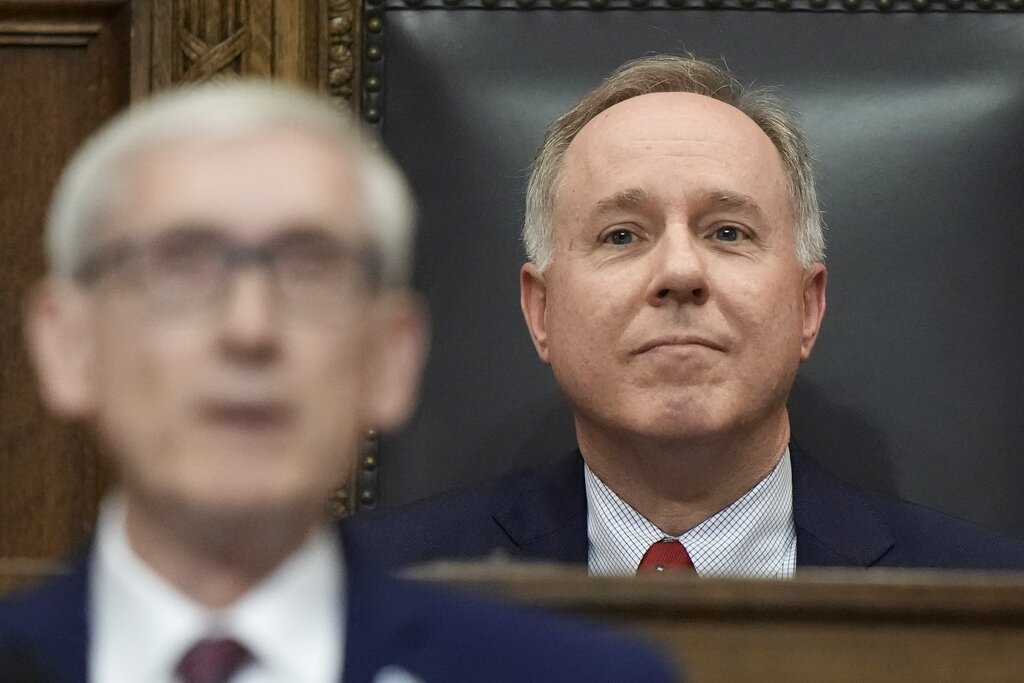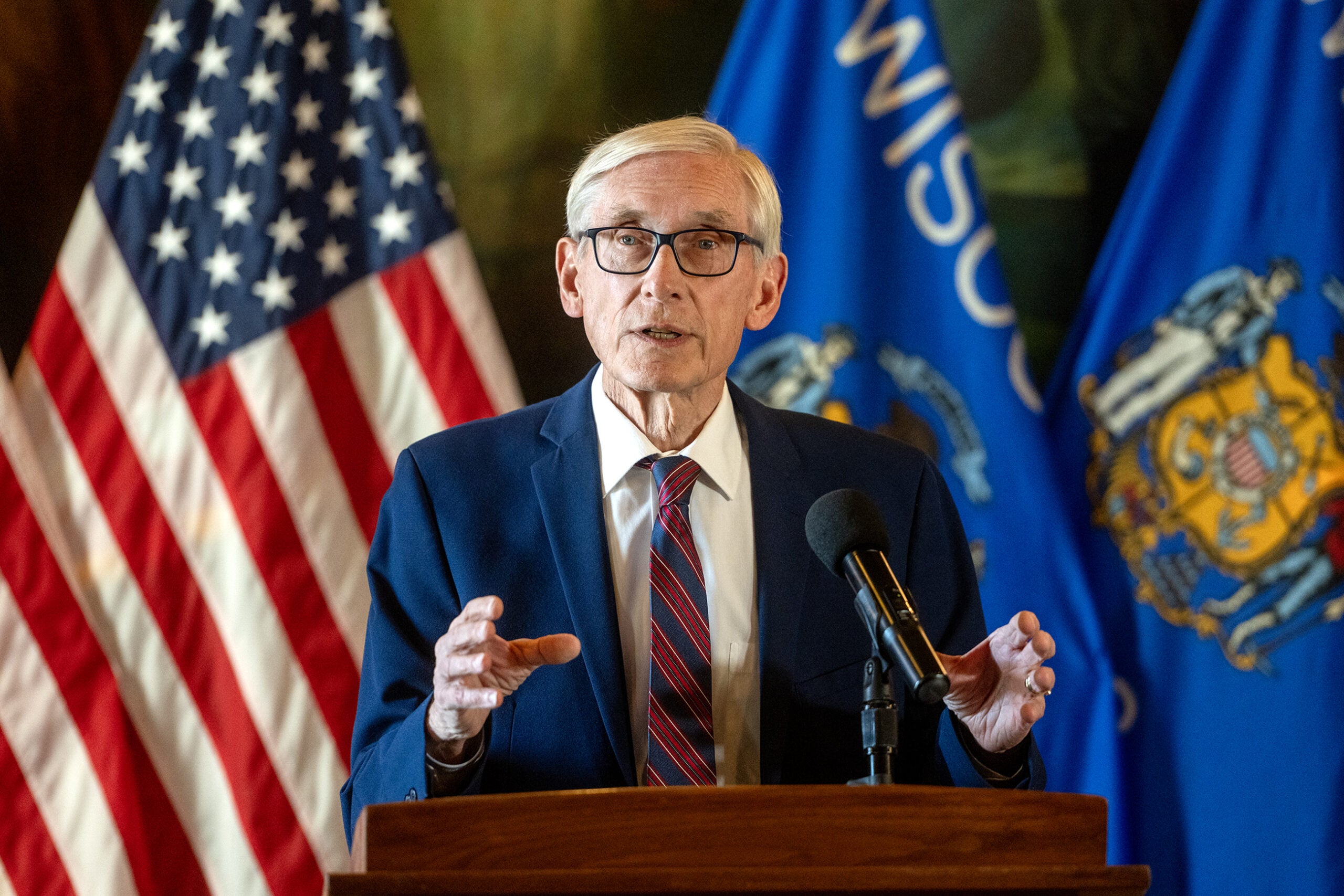Republican state lawmakers are calling on Gov. Tony Evers to sign the state budget headed to his desk, but Evers says it’s too soon to say how he may change — or whether he’ll completely reject — the two-year spending plan.
The state Assembly and Senate approved the budget on mostly party-line votes Tuesday and Wednesday. Seven Democrats joined all Republicans in supporting the plan. Overall, the budget spends billions of dollars less than Evers called for earlier this year and omits major proposals from the Democratic governor, including legalizing marijuana, expanding Medicaid and raising the minimum wage. It also includes a $3.4 billion tax cut the governor didn’t propose.
During a Capitol press conference Thursday morning, Rep. Mark Born, R-Beaver Dam, who co-chairs the GOP-controlled state budget committee, said Evers should sign the budget without making any changes.
News with a little more humanity
WPR’s “Wisconsin Today” newsletter keeps you connected to the state you love without feeling overwhelmed. No paywall. No agenda. No corporate filter.
“This is a budget the governor needs to sign in its entirety when it arrives at his desk,” Born said. “It’s a reasonable, responsible and realistic budget.”
Evers has one of the most powerful veto pens in the country, with the ability to delete words, numbers and punctuation from the budget. For the last budget, he used his veto authority to increase school funding by about $65 million, along with about 75 other changes. However, a state Supreme Court decision last year could limit the governor’s powers this time. That decision struck down three of the governor’s 2019 budget vetoes, but didn’t provide a clear definition of how a governor may overstep his proper veto authority in the future.
Speaking at an event Thursday on the Oneida Reservation, Evers wouldn’t say what changes he might attempt this year.
“So much of the decision-making that I do have is going to be relying upon the actual language of the bills, which we have not seen,” he said.
Evers said he expects the official transmission of the full budget document to his office in the next few days. At that point, he said, his office will begin reviewing specific language approved in the spending plan.
“I’m looking forward to finally getting it and spending lots of time over the next few days going through it and seeing what we’re going to do with different parts of it that may be changed,” he said.
Evers wouldn’t weigh in on specific parts of the budget, including the $3.4 billion tax cut introduced into the plan by Republicans, but said he is not opposed to tax cuts in general.
“Finding tax relief is important,” the governor told reporters. “It’s not that I’m opposed to that, I just have to see it in the context of what the actual language is.”
Aside from the tax cut, Republicans have pointed to funding increases for broadband internet expansion and state support for nursing homes as major accomplishments in the spending plan, as well as allocating a hefty sum for the state’s so-called “rainy day fund.”
“For the sake of Wisconsin, he should sign it in its entirety,” Senate Majority Leader Devin LeMahieu, R-Oostburg, said at the GOP press conference.
The majority of Democrats said the budget doesn’t go far enough to support many state-backed programs and institutions, including K-12 schools, higher education and health care. At least three of the seven Democrats who voted for the plan have publicly expressed hope that Evers will use his veto pen to make changes.
Wisconsin Public Radio, © Copyright 2026, Board of Regents of the University of Wisconsin System and Wisconsin Educational Communications Board.







